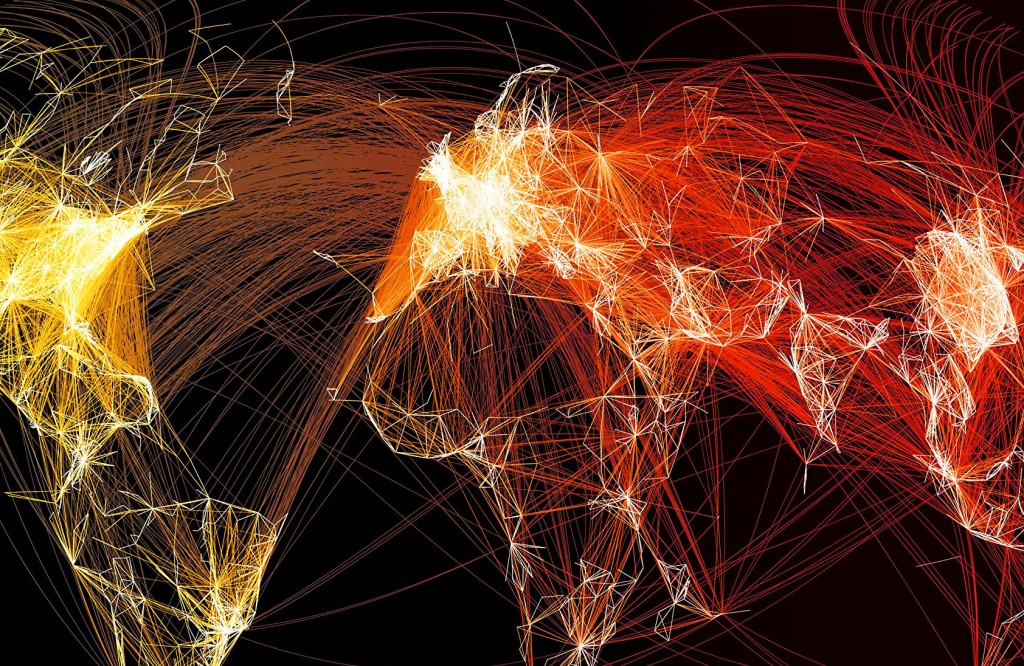Parag Khanna loves maps. Born in India, his parents took him everywhere on their travels while growing up in the United Arab Emirates, New York and Germany: “Whether finding maps in the glove compartment or flipping through the maps in airline seat pockets, maps always kept me busy,” the bestselling geopolitical author tells us. “They gave me a role as a navigator and helped me appreciate geography and distance.”
Named one of ‘75 Most Influential People of the 21st Century‘ by Esquire Magazine, today the global theorist, TED speaker and CNN Global Contributor believes that beneath the chaos of a world appearing to fall apart is a new foundation of connectivity that is actually pulling it together. “Seeing is believing. Better maps of the real – and more positive – world can shape how mankind thinks and behaves. Atlas of the Future isn’t just creative cartography, but progressive as well.”
In his latest book, Connectography: Mapping the Future of Global Civilization, we can all benefit from the optimism of his maps. “Even though this is my newest book, it feels the most complete and natural because it stems directly from my childhood obsessions.”
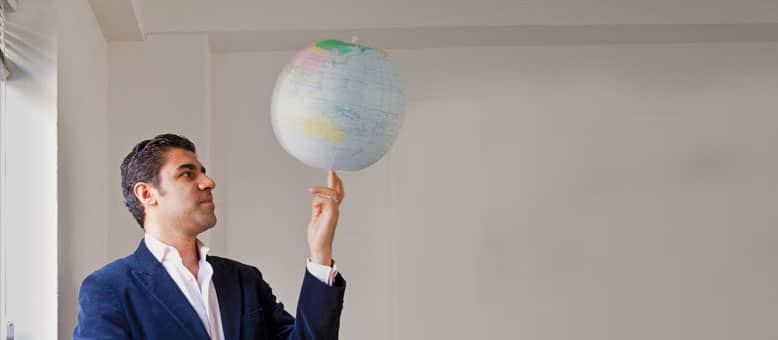
Khanna sees a world that is not spinning out of control
Connectography reimagines a hopeful future and inclusive global society. The visionary strategist foresees a world in which megacities and global supply chains redraw the map away from manmade national borders – through infrastructure such as transportation, energy, water, sanitation and communication. New discoveries in energy and technology eliminate resource wars, ambitious power grids unscramble fraught colonial borders and cyber-communities empower commerce. The most connected powers and people win.
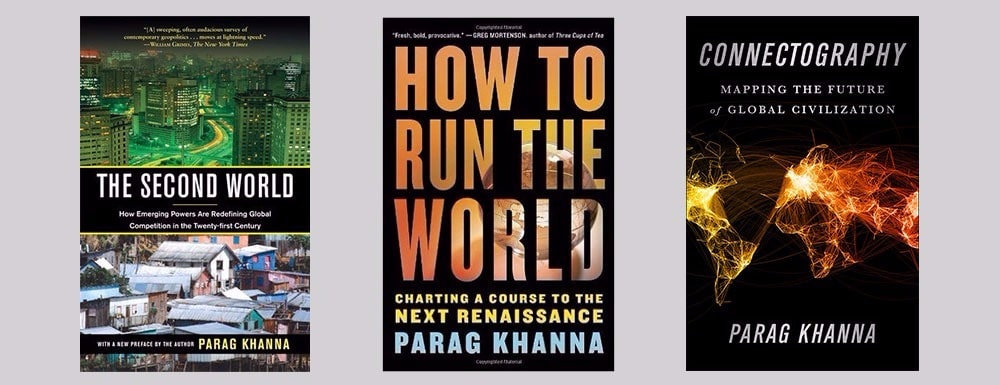
Khanna’s revolutionary trilogy on the future of world order
From Ukraine to Iran, Mongolia to North Korea and Pakistan to Nigeria, unique maps are Connectography’s crown jewels. For Khanna, their pursuit “became something of a mission, a destiny.” He never imagined that he would have the honour of including custom-designed maps by leading cartographic labs.
The cartophile talked the Atlas through 7 reasons why our hyperconnected global network civilisation will be okay. With maps. (If you hadn’t got that already.)
1. Cities are solving the world’s problems
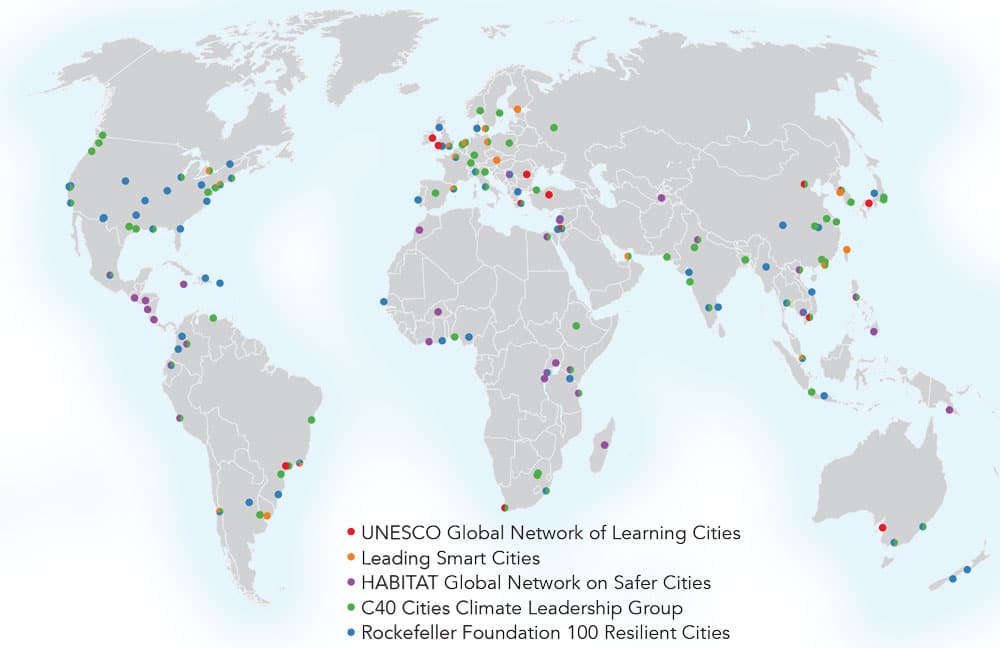
Credit: University of Wisconsin-Madison Cartography Lab
“We can’t count on the UN or the same multilateral negotiations that have been going on for decades to solve climate change. Cities are rekindling the ancient practice of what I call ‘diplomacity’ – trading ideas with each other. The C40 is only the most prominent of more than 200 intercity learning networks that are thriving today. Cities are learning from each other how to install low-emissions buildings, deploy electric car sharing systems, set-up skills centres to train youth, promote public safety, and all the other essential action items to achieve mankind’s top priority in the 21st century: Sustainable urbanisation.”
2. Trade includes everyone
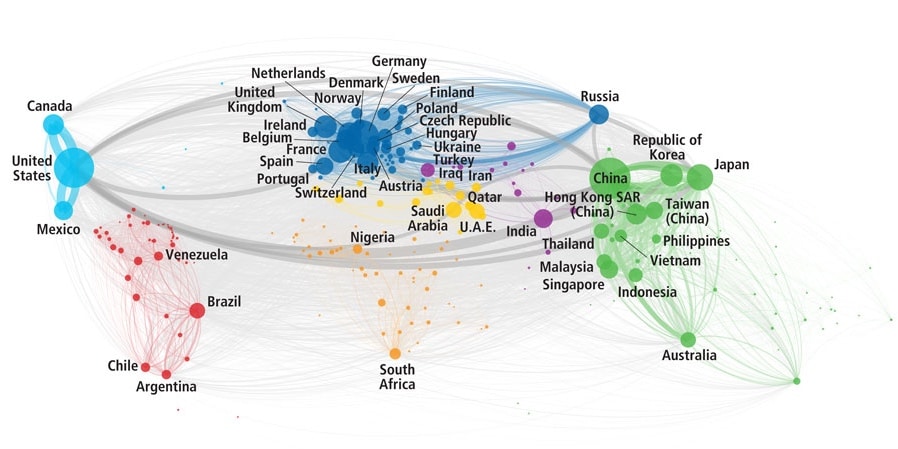
Merchandise flows and stocks. Credit: Rahul C. Basole and Hyunwoo Park for Pankaj Ghemawat and Steven A. Altman, DHL Global Connectedness Index 2014
“Up until the late 1990s, the OECD countries (Organisation for Economic Co-operation and Development) represented more than 80 percent of global trade. No longer. Trade has become truly global, reaching every corner of the planet and enabling every nation to join global value chains. The more societies participate in this global division of labour, the more their living standards improve.”
3. Soon the whole planet will be online
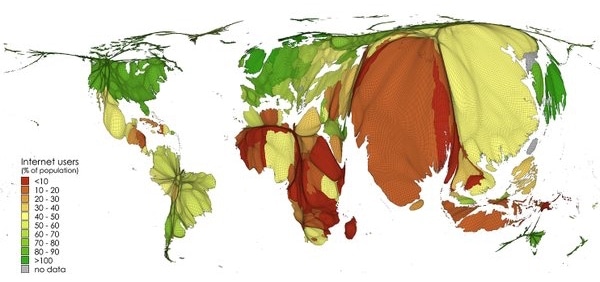
Credit: WorldMapper
“The ballooning number of people getting online, especially in Asia, is also part of why these countries are growing so fast. At the same time, in many large developing countries less than half the population has proper Internet access. Major initiatives such as the Next Three Billion and Facebook’s Internet.org are helping to bridge the last mile. By 2025 almost every human being should have a mobile phone and be connected to the Internet.”
4. More cities are becoming melting pots
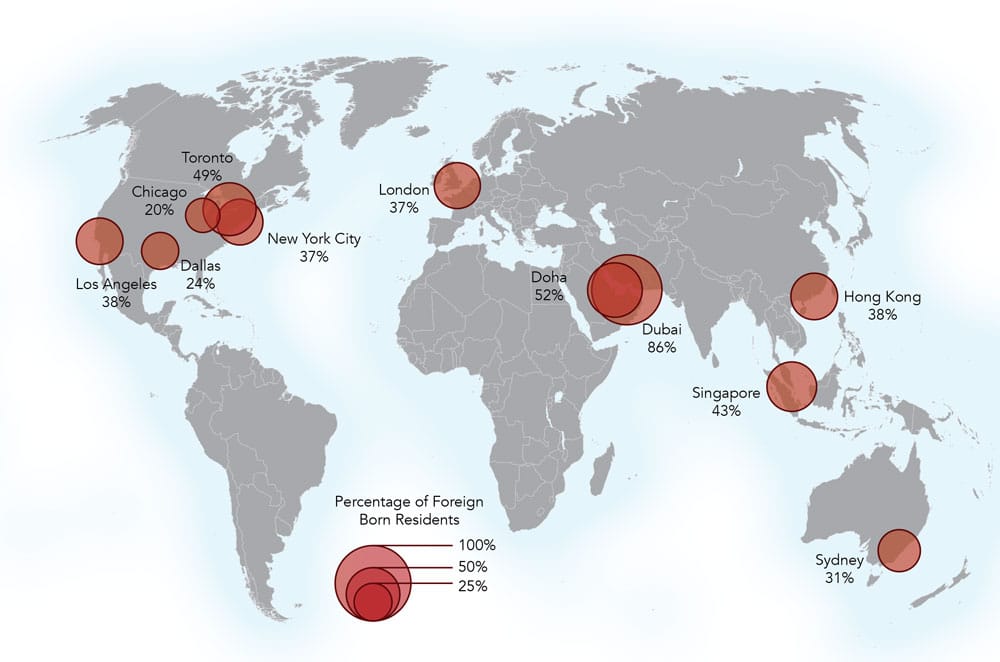
Credit: University of Wisconsin-Madison Cartography Lab
“The number of cities that are connected global hubs is rising, and all great global cities – or those that claim to be – recognise the importance of openness and diversity. They are becoming melting pots, with high percentages of foreign-born residents. At a time when political populism is on the rise, it’s worth remembering that diversity, tolerance and inclusiveness are what make societies great. One day people will take more pride in city than country – such ‘civicism’ could triumph over nationalism.”
5. We are protecting the planet
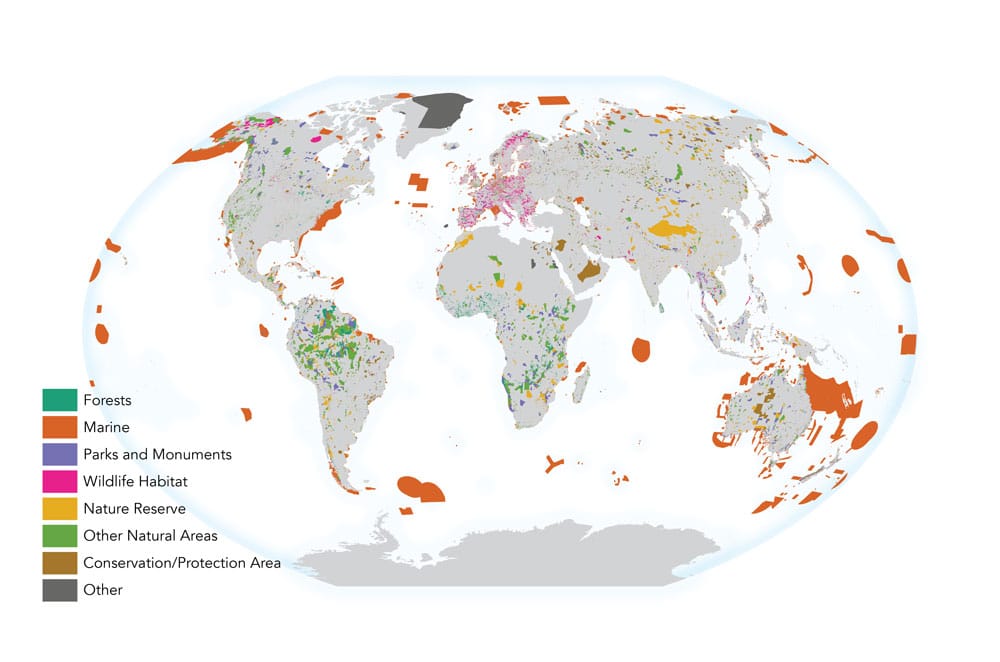
Credit: University of Wisconsin-Madison Cartography Lab
“As climate change, deforestation and marine pollution all accelerate, governments and NGOs are banding together like never before to designate large swaths of the planet as protected areas, not only off-limits to exploitation but also more closely monitored by watchdog groups and satellites. Furthermore, serious efforts are being made to restore these fragile eco-systems from the Arctic to the tropical rainforests to oceanic life.”
6. Africa is healing its colonial scars

Credit: Jeff Blossom
“Africa has the most borders and landlocked nations of any continent, and thus needs more infrastructure to tie its societies together into more productive wholes. This is finally happening through a combination of better governance and Chinese investment. Especially the East African Community is evolving in a direction similar to Southeast Asia by building cross-border connections such as railways and trade corridors to become a regional zone of peace and prosperity.”
7. Countries focus on the basics to build a better life for citizens
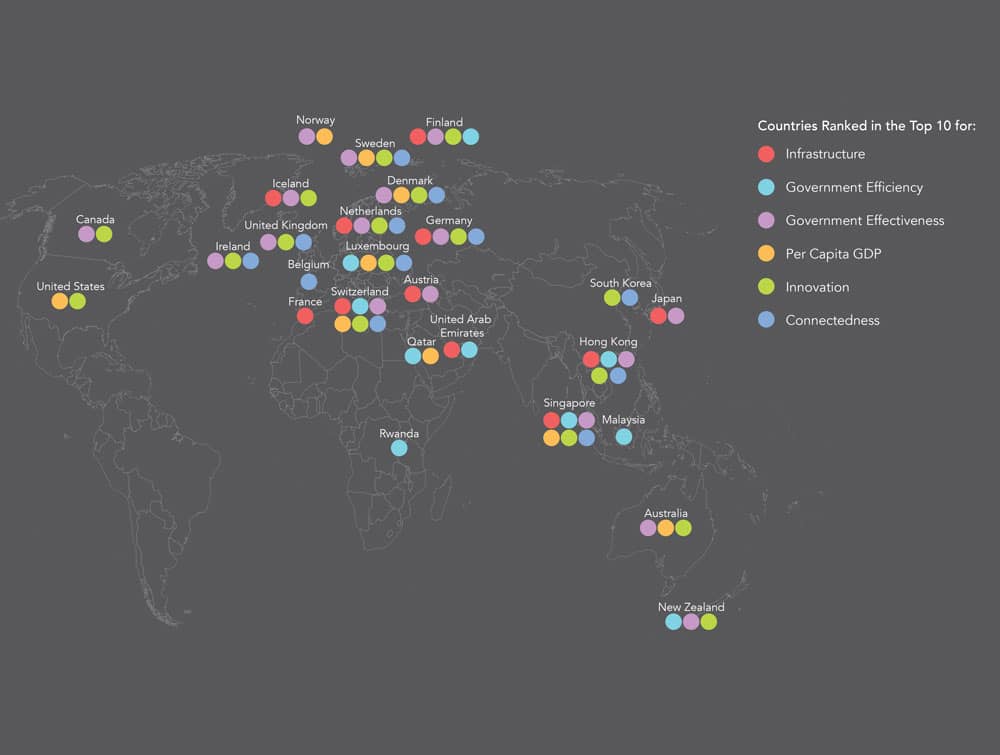
Credit: University of Wisconsin-Madison Cartography Lab
“We know what it takes to create more fair and equitable societies: High quality infrastructure, efficient government, investment in health and education, openness to trade in goods and ideas, and so forth. More and more countries are beginning to focus on these basics that matter most for building fair and just societies.”
Parag Khanna was talking to Atlas Editor Lisa Goldapple. All maps featured here are adapted from his new book, Connectography, which is now available here.
